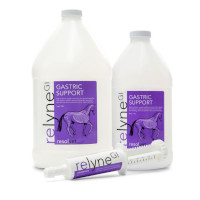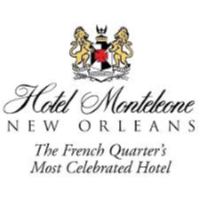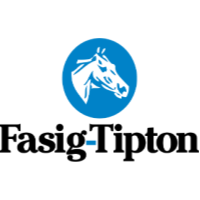WITH DERBY DREAMS ON THE BACKBURNER, FAUCHEUX IS HAPPY TO CONTINUE TO BUILD HIS LOUISIANA EMPIRE
FOR IMMEDIATE RELEASE:
Contact: Grant LaGrange
Racing Analyst/Media Relations
WITH DERBY DREAMS ON THE BACKBURNER, FAUCHEUX IS HAPPY TO CONTINUE TO BUILD HIS LOUISIANA EMPIRE
Faucheux battling with Brad Cox for the Fair Grounds training title
New Orleans (March 4, 2020) – Ron Faucheux, a 37-year-old Louisiana native with over 500 career training wins to his name, has made a name for himself in his home state of Louisiana with the ability to train both graded stakes caliber horses and also play the Louisiana bred claiming game to perfection.
Now over 10 years into his training career, Faucheux has 513 wins from 2,076 starts (as of March 4, 2020) and career purse earnings of over $11.9 million.
I had the chance to sit down with Faucheux Friday morning and get to know more about the early stages of his career, as well as where he’s aiming to be.
How did you get involved in racing? Was it something you have always been around?
“I wasn’t raised around horses from an early age,” Faucheux said Friday morning near the Fair Grounds paddock. “I was about 11 or 12-years-old and I went with my step-dad Louie Roussel to the track for the first time and just the surroundings and the people involved is what got me hooked. Right away I knew I wanted to do something with racehorses.”
“I started to go work over the summer for Billy Badgett in Saratoga and Belmont when I was about 16-years-old,” Faucheux continued. “Around high-school I knew that I wanted to be a trainer and that was the path I was going to take. I transferred high schools my sophomore year and wasn’t eligible to play sports until my senior year and by that time all I wanted to do was be around the racetrack.
What were the early days of your career like? When did you go out on your own and start to build your stable?
“In 2009 is when I went out on my own,” Faucheux said. “I started off with two horses. We won three races with the two horses. One of them I thought we had no shot with; he had run like seventh the past two starts and I thought we just didn’t have a chance. I was entering in a state-bred non-winners of three lifetime race and the race didn’t go. The racing office convinced me to run the horse in an open company $5,000 claimer and my horse (Built to Precision) won by like three of four lengths. I don’t remember what it paid but it was a nice price and that was my first career win.”
“After that I was able to get Frank Calabrese to send me some money to start claiming,” Faucheux continued. “I claimed three horses in Louisiana and Frank invited me to go to Chicago so I went up there and that’s where I really started my stable. We had anywhere between 10 and 15 horses that meet at Arlington. After the Chicago meet we went down to Florida and were running at Calder and the start of Gulfstream Park.
After your time in Chicago and Florida, did you ever have any thoughts to come back to Louisiana and train?
“I always wanted to get back to New Orleans,” Faucheux said. “I convinced Frank Calabrese to let me bring about four horses down and we started our first horse at Evangeline Downs. The horse was like 3-5, completely missed the break and got beat so Frank calls me and tells me he wants the horses out of there and back to him. I knew if I lost those horses I would be in trouble so I talked Frank into letting me keep the horses to try to sell them to some owners down here that were looking to run in Louisiana so he wouldn’t have to pay for them to be shipped around the country. I was able to sell three of the horses and I ended up buying one of them for $15,000 for myself. Her name was Paper Shredder and she did well for me winning some races, she helped pay for some of the tack and just helped me get my barn started.”
Gantry was your first graded stakes winner, what was that experience like and how did you get the opportunity to train a horse like that at the beginning of your career?
“Over the summer of 2010 I started training for Evelyn Benoit at Evangeline Downs,” Faucheux said. “Thanksgiving Day at Fair Grounds is obviously a big day and she kept mentioning that she had never won a race on that day. I was looking at my condition book and saw a $17,500 claimer on the turf and thought we could claim one and be aggressive in that spot, but she got back to me and said she was eyeing the Thanksgiving Handicap. I only had some nickel claimers in my barn and I’m thinking wow, okay let’s do it. We went look at Gantry and got him in October from Belmont. He was 8-1 on the morning line in the Thanksgiving and I had some doubts but he of course ended up winning that race and sweeping the sprint series at Fair Grounds that year. He gave me my first career graded stakes win in the Smile Sprint Handicap (G2) at Calder and we got to run in Breeders’ Cup so it was a fun journey with him.”
Guys like Brad Cox, Steve Asmussen, Al Stall Jr., etc.. come to Fair Grounds every winter, and you always find a way to stamp yourself near the top of the leaderboard. You’re sitting just behind Brad Cox on the leaderboard right now, what’s it like getting to compete against these guys and more than hold your own?
“It’s special to be able to hold my own against these trainers that come here for the winter,” Faucheux said. “The goal and the dream for most trainers is to win a Kentucky Derby, but for me my dream was always that I wanted to win and be competitive at the Fair Grounds. If those big horses and a Derby or races like that happen its great and I would love it, but I like being in Louisiana and training here and winning races at the Fair Grounds.”
“We treat each horse as an individual and try to spot them where they are competitive,” Faucheux continued. Obviously if it were to happen and I was leading trainer for the meet that would be a dream come true but at the same time we’re just trying to spot our horses in the right places here and take our time with them.”
You have obviously made a name for yourself in the claiming game, what goes into claiming a horse and what do you credit your claiming success too?
“There is defiantly a skill to claiming horses,” Faucheux said. “I was never around much either early on. Working for Todd Pletcher in my early days that’s obviously not what he does. When I started out on my own I figured out how important claiming was when you’re trying to build a stable. Working for Frank Calabrese that’s really all you do so I was able to sharpen my skills with him. I realized as I started doing it more that I had a pretty good idea of how to play the claiming game and sort of found my niche. It’s all about fitting conditions.”
10 years from now, where do you hope to be in your training career?
“I have two kids and we live here in Louisiana,” Faucheux said. “I take pride in being here with them and getting to be around them. I know a lot of trainers don’t get to be with their kids as much with all the travelling. Being able to train nice horses and be here with my kids in Louisiana is big for me. If we eventually branch out and go around the country I wouldn’t completely be against it, but I’d like to stay here continue building what I have. To be honest, I like being the trainer that stays here year around and can still compete with these bigger names when they come down here over the winter.”
-30-
About Fair Grounds Race Course & Slots: Fair Grounds Race Course & Slots, one of the nation’s oldest racetracks, has been in operation since 1872. Located in New Orleans, LA, Fair Grounds is owned by Churchill Downs Incorporated (NASDAQ Global
Select Market: CHDN); it also operates a slot-machine gaming facility and 13 off-track betting parlors throughout southeast Louisiana. The 148th Thoroughbred Racing Season – highlighted by the 107 th running of the Louisiana Derby – will run from November 28, 2019 through March 29, 2020. More information can be found online at www.FairGroundsRaceCourse.com.
Information set forth in this press release contains various “forward-looking statements” within the meaning of Section 27A of the Securities Act of 1933 and Section 21E of the Securities Exchange Act of 1934. The Private Securities Litigation Reform Act of 1995 (the “Act”) provides certain “safe harbor” provisions for forward-looking statements. All forward-looking statements made in this press release are made pursuant to the Act. The reader is cautioned that such forward-looking statements are based on information available at the time and/or management’s good faith belief with respect to future events, and are subject to risks and uncertainties that could cause actual performance or results to differ materially from those expressed in the statements. Forward-looking statements speak only as of the date the statement was made. We assume no obligation to update forward-looking information to reflect actual results, changes in assumptions or changes in other factors affecting forward-looking information. Forward-looking statements are typically identified by the use of terms such as “anticipate,” “believe,” “could,” “estimate,” “expect,” “intend,” “may,” “might,” “plan,” “predict,” “project,” “seek,” “should,” “will,” and similar words, although some forward-looking statements are expressed differently.
Although we believe that the expectations reflected in such forward-looking statements are reasonable, we can give no assurance that such expectations will prove to be correct. Important factors that could cause actual results to differ materially from expectations include the following: the effect of economic conditions on our consumers’ confidence and discretionary spending or our access to credit; additional or increased taxes and fees; public perceptions or lack of confidence in the integrity of our business; loss of key or highly skilled personnel; restrictions in our debt facilities limiting our flexibility to operate our business; general risks related to real estate ownership, including fluctuations in market values and environmental regulations; catastrophic events and system failures disrupting our operations, including the impact of natural and other disasters on our operations and our ability to obtain insurance recoveries in respect of such losses; inability to identify and complete acquisition, expansion or divestiture projects, on time, on budget or as planned; difficulty in integrating recent or future acquisitions into our operations; legalization of online real money gaming and sports wagering in the United States, and our ability to capitalize on and predict such legalization; the number of people attending and wagering on live horse races; inability to respond to rapid technological changes in a timely manner; inadvertent infringement of the intellectual property of others; inability to protect our own intellectual property rights; security breaches and other security risks related to our technology, personal information, source code and other proprietary information, including failure to comply with regulations and other legal obligations relating to receiving, processing, storing and using personal information; payment- related risks, such as chargebacks for fraudulent credit card use; compliance with the Foreign Corrupt Practices Act or applicable money-laundering regulations; compliance with payment processing and payment transmission regulations; work stoppages and labor issues; difficulty in attracting a sufficient number of horses and trainers for full field horseraces; inability to negotiate agreements with industry constituents, including horsemen and other racetracks; personal injury litigation related to injuries occurring at our racetracks; the inability of our totalisator company, United Tote, to maintain its processes accurately, keep its technology current or maintain its significant customers; weather conditions affecting our ability to conduct live racing; increased competition in the horseracing business; changes in the regulatory environment of our racing operations; declining popularity in horseracing; seasonal fluctuations in our horseracing business due to geographic concentration of our operations; increased competition in our casino business; changes in regulatory environment of our casino business; the cost and possibility for delay, cost overruns and other uncertainties associated with the develop.m.ent and expansion of casinos; concentration and evolution of slot machine manufacturing and other technology conditions that could impose additional costs; impact of further legislation prohibiting tobacco smoking; geographic concentration of our casino business; changes in regulatory environment for our advanced deposit wagering, sports wagering, or online gaming businesses; increase in competition in the advanced deposit wagering, sports wagering, or online gaming businesses; inability to retain current customers or attract new customers to our advanced deposit wagering, sports wagering, or online gaming businesses; uncertainty and changes in the legal landscape relating to our advanced deposit wagering, sports wagering, or online gaming businesses; and failure to comply with laws requiring us to block access to certain individuals could result in penalties or impairment in our ability to offer advanced deposit wagering, sports wagering, or online gaming.












